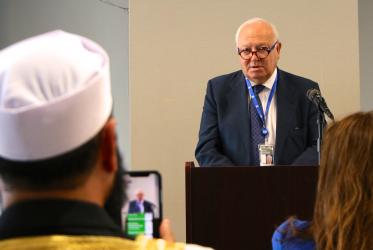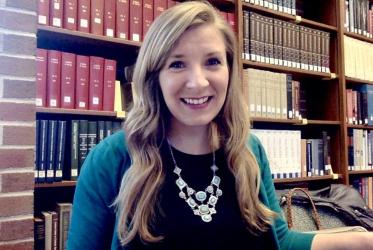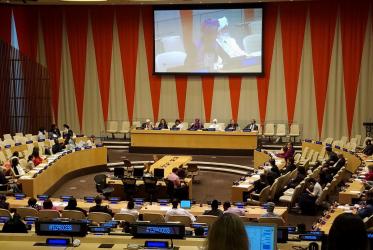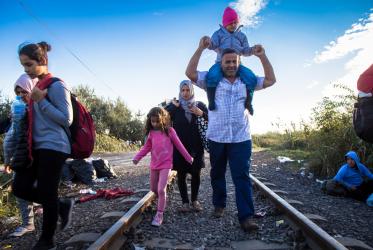Displaying 1 - 17 of 17
07 October 2019
Worshipping safely: UN, faith communities unite to prevent violence
20 September 2019
Dr Saïd Ailabouni: God is on the side of rejected, oppressed, occupied
12 September 2019
WCC pressing ahead with disarmament work
28 August 2019
Peacemakers at work in Sri Lanka
29 April 2019
Faces of Hope raises awareness
07 March 2018
Momentum builds for ban on nuclear weapons
16 December 2014








